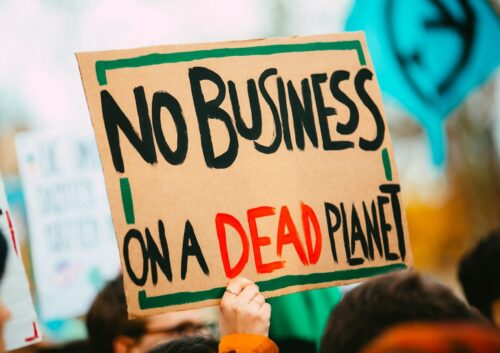Each time the Department of Energy (DOE) finalized regulations targeting popular home appliances—including stoves, clothes washers, refrigerators, and water heaters—over the last several months, the agency included a similar line in the announcement: The new rules were crafted with the help of recommendations from a “wide range of stakeholders.” [emphasis, links added]
According to the DOE, the stakeholders included industry partners and consumer advocacy organizations.
A Washington Free Beacon review, however, shows that seven out of the 10 stakeholders whose recommendations DOE consulted are climate activist groups or left-leaning consumer groups.
Those groups collectively boast substantial financial backing from grantmaking nonprofits that regularly funnel money to a wide range of progressive social and environmental initiatives.
Among the stakeholders are the Consumer Federation of America, Appliance Standards Awareness Project, American Council for an Energy-Efficient Economy, Earthjustice, National Consumer Law Center, National Resources Defense Council, and Consumer Reports.
Those groups have received millions of dollars from nonprofits such as the Bloomberg Family Foundation, TomKat Foundation, Rockefeller Foundation, Hewlett Foundation, and Schmidt Family Foundation.
The revelation sheds light on how DOE ultimately welcomed the influence of far-left climate-focused interest groups while finalizing key government rulemakings, which taken together, may cost Americans thousands of dollars when purchasing new appliances.
And it appears to contradict any assertion that the regulations are the product of negotiations involving stakeholders across the ideological spectrum.
“If the agency is going to rely on these far-left groups, who have never met a regulation they didn’t like, the results are going to be obvious. And that’s what we are seeing,” Ben Lieberman, a senior fellow at the Competitive Enterprise Institute, told the Free Beacon.
“The reality of these negotiations is that the true interests of consumers never have a seat at the table.”
“These groups—they are really far, far left and are pushing a larger agenda that sacrifices consumers, rather than helping consumers, and I would include the so-called consumer groups. This is an anti-energy and climate change agenda that comes at the expense of consumers,” he continued.
In four recent regulatory announcements — targeting residential refrigerators in December, stovetops in January, clothes washers and dryers in February, and dishwashers in early April — DOE cited the same joint recommendation assembled by stakeholders in September 2023.
Then, in a fifth announcement in April, DOE finalized standards for residential water heaters, which it said “align with” a separate 2022 agreement put forward by a similar coalition.
In each of the announcements, the agency said forcing manufacturers to only sell more efficient products would lead to substantial long-term consumer savings and massive emissions reductions.
Activists have increasingly set their sights on the residential sector, which together with the commercial sector produces roughly 31 percent of the nation’s greenhouse gas emissions, according to EPA data.
“DOE’s robust rulemaking process provides multiple avenues for stakeholder engagement, including data sharing, public meetings, and comment submittals on DOE’s methods, policy proposals, analytics, and results,” a DOE spokesman said in a statement.
“DOE welcomes input and feedback from all stakeholders. As part of our process, DOE also considers stakeholder consensus agreements and negotiated rulemakings for consideration.”
Both stakeholder coalitions, meanwhile, were led by the Consumer Federation of America and Appliance Standards Awareness Project, two groups with a long history of advocating for stringent appliance regulations and aggressive federal climate policies.
For example, according to its website, the Consumer Federation of America has for years pushed higher energy efficiency standards for new appliances and even joined a lawsuit against the Trump administration, accusing it of not acting quickly enough to update such standards.
At the state level, the group has backed similar proposals such as moves to outlaw fluorescent light bulbs in Massachusetts and Maine, and a bill broadly cracking down on appliances in Connecticut.
The Consumer Federation of America, whose members include eco groups like the Center for Environmental Health and the Environmental Working Group has further called for electric vehicle mandates and stricter fuel economy rules to incentivize greater electric vehicle sales and called on Energy Secretary Jennifer Granholm to take actions “transforming the U.S. energy system” shortly after she was confirmed to the position.
Additionally, the Appliance Standards Awareness Project (ASAP) states on its website that it “advocates for appliance, equipment, and lighting standards that cut planet-warming emissions and other air pollution.”
The group, the website continues, focuses on federal rulemaking, congressional advocacy, litigation, and state actions to push stricter appliance regulations.
Read rest at Free Beacon




















Biden the Blunder and his DOE Hag wants Leftists and Eco-Freaks regulate our Appliances proving Bidens is not fit to be in the Oval Office and none of his Cabinet have the Intelligence beyond a Fleas